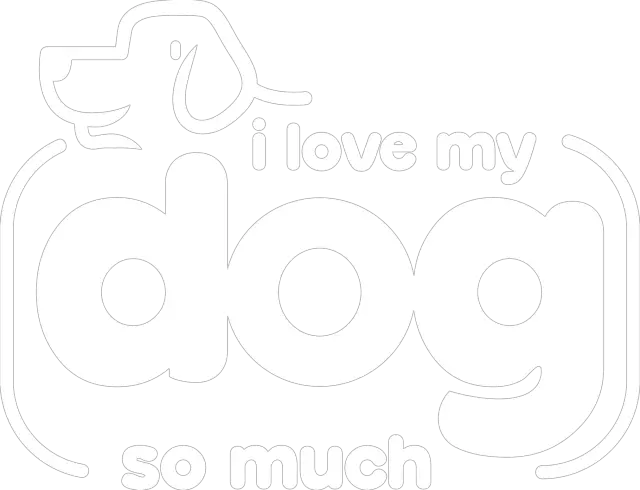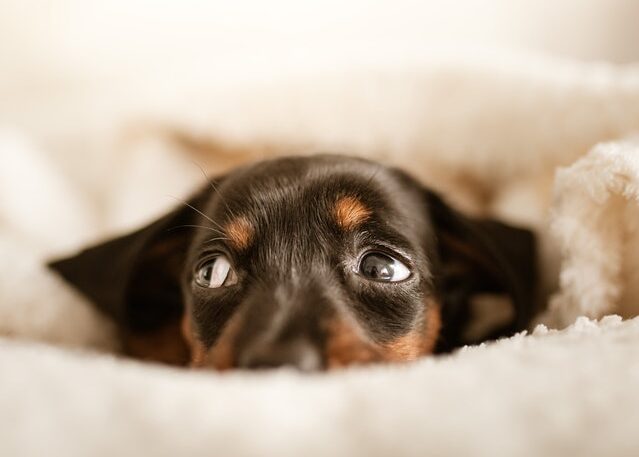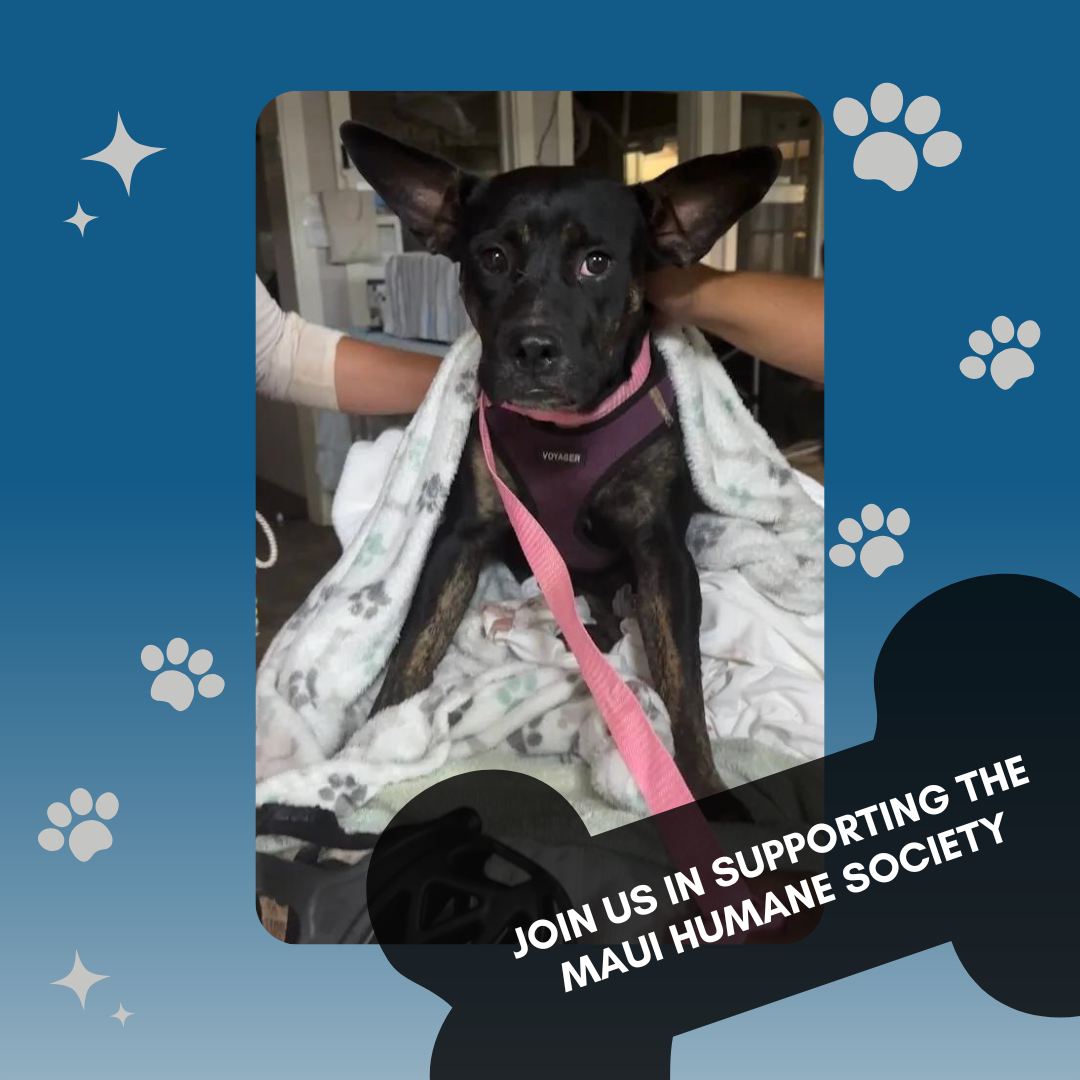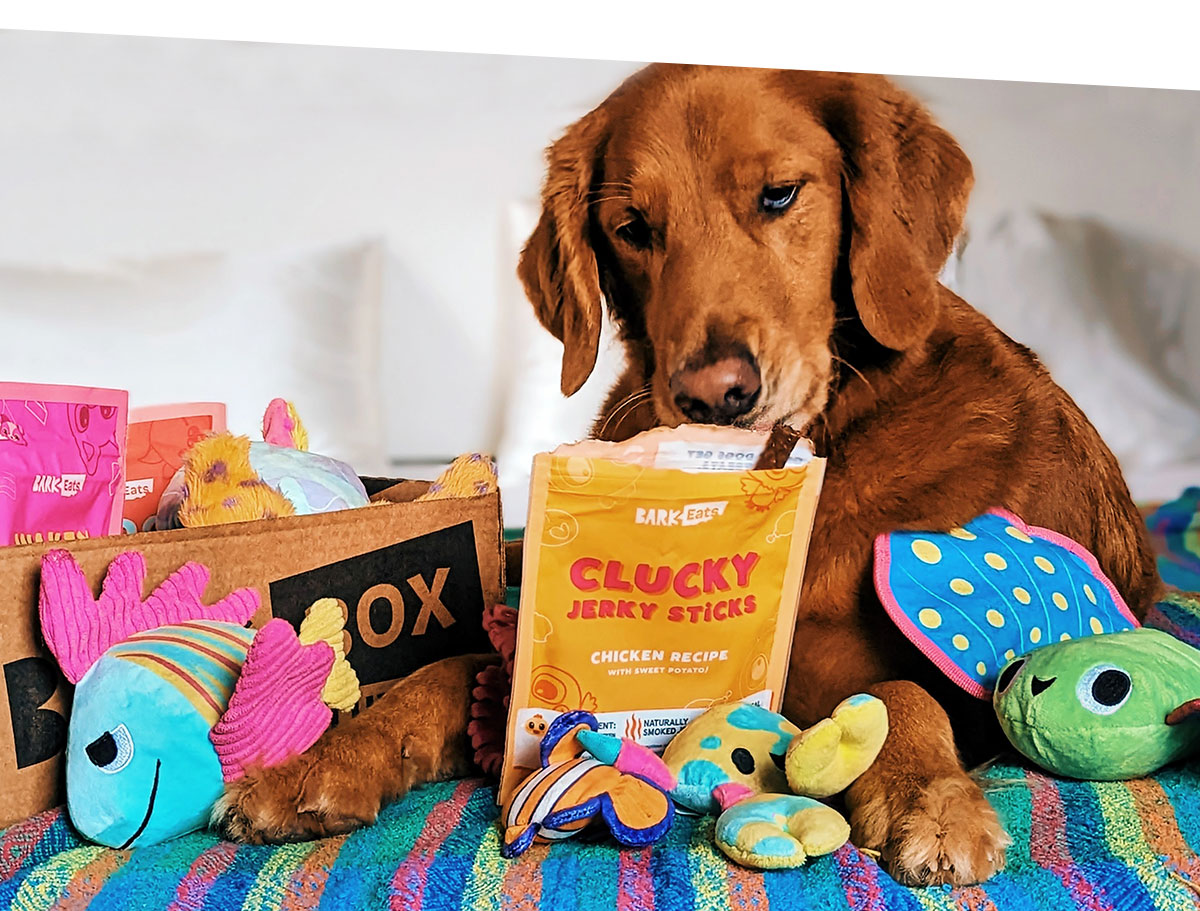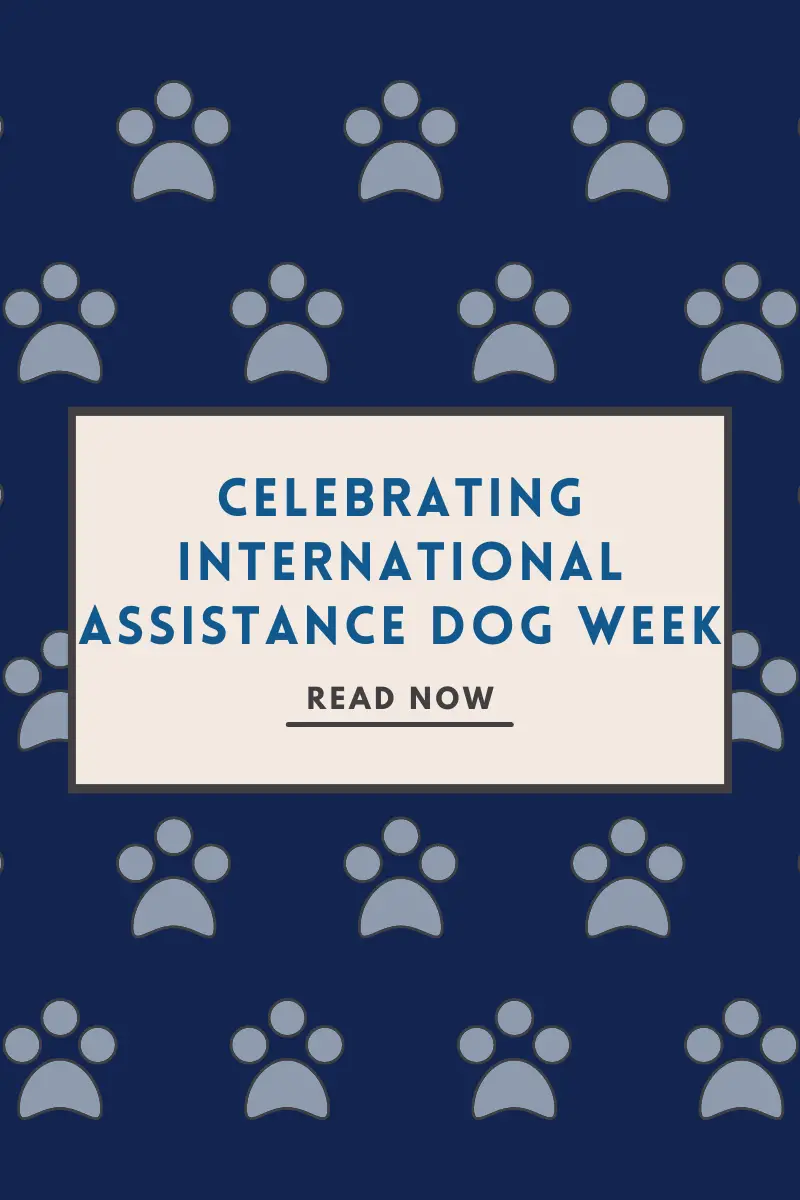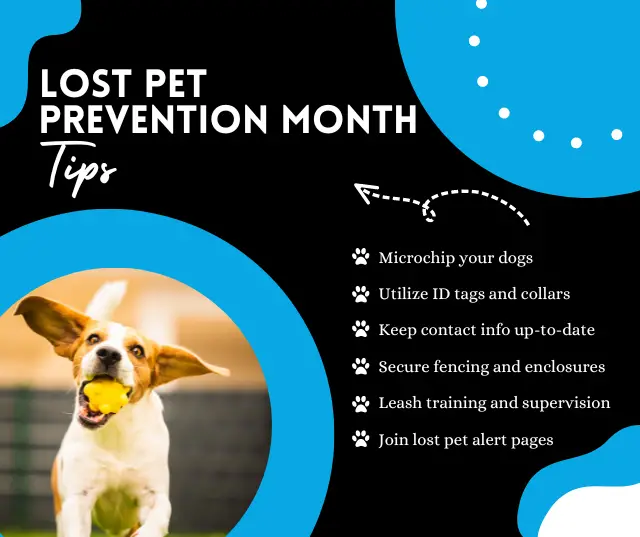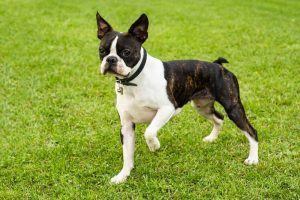Dog owners everywhere know that loud noises can freak their dogs out. Dogs will run, hide, or bark at anything that makes a loud noise; whether it’s fireworks, car alarms, trucks, or even vacuum cleaners. You can be sure their fight or flight response is triggered with sounds, but you can’t blame them. Fear of loud noises is a very normal evolutionary response, something that has helped dogs survive since the dawn of time. However, noise phobia in dogs is very common as a recent study showed that at least 39 percent of dogs have a fear of loud noises.
Understanding Noise Phobia
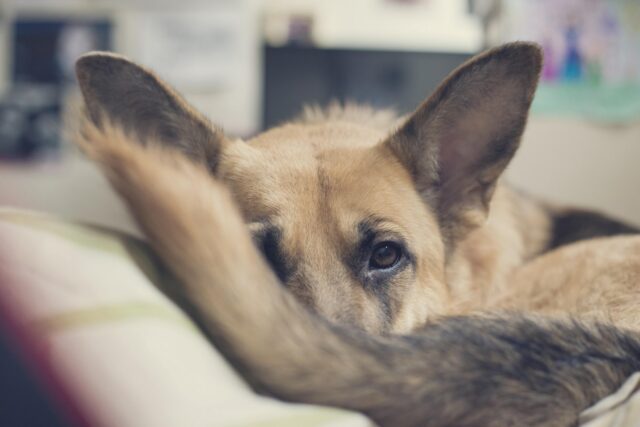
Dogs with noise phobias tend to have abnormal or intense reactions to loud sounds such as thunder, car horns, slamming doors, and more. It is unknown what exactly causes noise phobias to develop in dogs, however, environmental and genetic factors might play a role in its development. As puppies mature, they have a “Critical Socialization Period” that lasts for about 12 to 14 weeks of age. During this time if puppies aren’t exposed to certain sounds, animals, sights, or other stimuli in a safe and positive experience they may develop a fear response to those things later in life.
Another factor that plays into the development of noise phobias is traumatic events that can lead to fear of those noises. For example, a loud fire alarm can cause stress and fear in a dog and prolonged exposure to that noise can traumatize a dog. Events like these may cause the dog to associate alarm noises with fear, stress, and anxiety – causing them to react severely to similar noises in the future.
Their sensitive hearing might also play a role in their strong reaction to noises as they can hear frequencies up to 45,000 Hz. This means that volumes that are already too loud for us humans are twice as loud for dogs. Not to mention the fact that they can hear high pitch noises that the human ear can’t pick up.
It is also believed that certain breeds are more prone to developing noise phobias due to their genetic predisposition to noise sensitivity. Breeds that are more commonly sensitive to sounds are German shepherds, collies, and golden retrievers. Meanwhile, other dogs can show signs of noise sensitivity that worsen over time with no apparent cause.
Signs of Noise Sensitivity
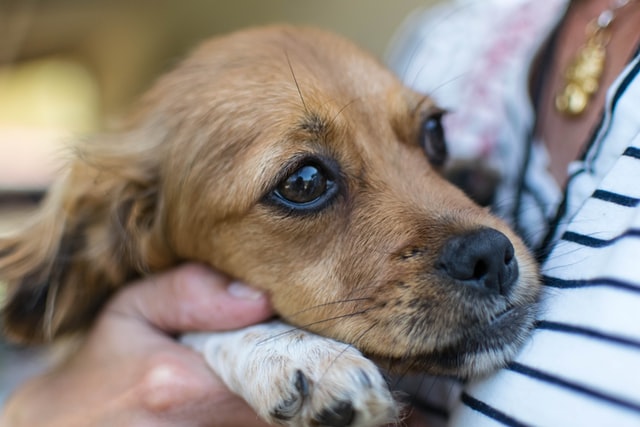
Noise phobic dogs can be exhibiting the following behavior when they hear or experience noises that scare them:
- Trembling or shaking
- Pacing
- Panting
- Hyperalertness
- Whining
- Barking
- Drooling
- Hiding
- Attempting to escape
- Destructive behaviors
- Urinating or defecating indoors
They can also exhibit subtle signs like stiffened body positions or movements, pinned back ears, or dilated pupils. However, dogs with a more severe response to the noise might have a violent outburst that can cause them harm when trying to escape the noise.
How To Help a Dog With Noise Phobia
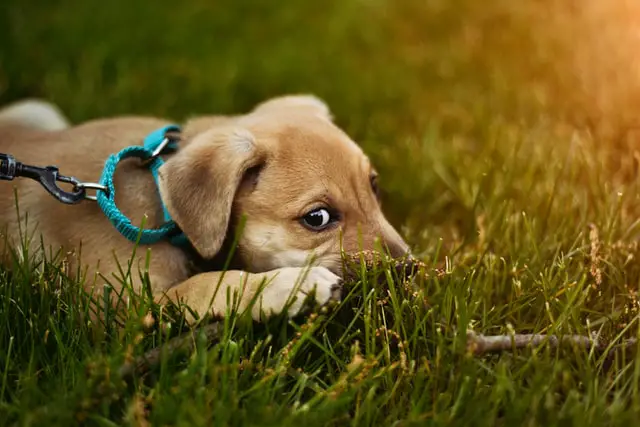
1. Address these Fears Early
If you see symptoms of noise phobia the most important thing you can do is address them immediately when you spot them. Fears can intensify over time if they are routinely exposed to loud noises which can turn into a true phobia. Once a dog develops a phobia for one type of noise they can likely develop phobias to other noises. Have your veterinarian examine your dog when fearful behaviors begin to develop. They can also check to see if the noise phobia is a symptom of another underlying condition. You can also consult them for supplements or medication that can be useful for noise phobias
2. Prepare a Safe Space
Set up a comfortable place for your dog to go to whenever they’re feeling stressed. This can be a closet, a bathroom, or a small dog house in your room with a comfortable blanket or a bed. To help avoid outbursts that can cause the dog to harm themselves, you can train your dog to seek refuge in these small havens. Having their own space where they feel safe can help them calm down when exposed to noises that they are scared of.
3. Avoidance
Dog owners should try to reduce their dog’s exposure to loud noises as much as possible. You can have them go to a friend’s house, a doggie daycare center, or a dog park when you have construction-related projects at home. You can also plan a vacation to a place where fireworks are banned during the holidays.
4. Tough Love
There are times when avoiding loud noises just isn’t an option in this case you should train your dog to handle these noises better. You can train your dog to become desensitized to these noises by playing low-volume recordings of noises they’re afraid of while gradually increasing the volume to a point that they can tolerate. Be very careful when doing this and make sure to reward your dog with positive reinforcement when they’re not responding terribly to the sound. Another method is to ignore them when they’re being afraid and reward them with treats or toys when they calm down. Make sure you keep a close eye on your dog’s body language because doing too much too fast might make it worse.
5. Calming Sounds
Whenever there is a loud sound that can bother your dog, you can help them by using soothing noises that are pleasing to them. Noises like soft music, ambient nature sounds, or other soft noises. This can help relax your dog while drowning out the noises that are bothering them. However, if they are already worked up by the noise it might be too late. Bear in mind, some dogs can find any noise overwhelming so keep an eye out for how your dog responds to some of the calming noises you’re using and adjust accordingly.
6. Pressure Wraps
A pressure wrap is anything that can wrap around a dog’s chest and torso. The wrap provides a constant, gentle pressure that helps dogs calm down and alleviate symptoms of stress, anxiety, and noise phobia. This is a simple yet effective method to keep the dog comforted, secured, and distracted from things that are causing them fear.
7. Medication
Reach out to your veterinarian if they have any suggestions or prescriptions that help give your dog relief. These medicines can be administered regularly to help alleviate symptoms of noise phobia in dogs. Some medicines are only given when your dog experiences an anxiety event. Meanwhile, other vets recommend a combination of both types of medicine. Ask your vet what is best for your dog to avoid any potential risks.
